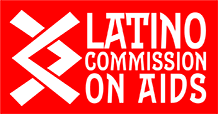CDC DISCLAIMER: This site contains HIV prevention messages that may not be appropriate for all audiences. If you are not seeking such information or may be offended by such materials, please exit this website. Since HIV infection is spread primarily through sexual practices or by sharing. needles, prevention messages and programs may address these topics. Individuals who are mentioned or whose photographs appear on this site are not necessarily HIV positive or have AIDS. This site is not designed to provide medical care, if you are ill, please seek medical advice from a licensed practioner. HIV prevention materials funded by CDC must be approved by local program review panels, however, the materials may be considered controversial by some viewers.
|


